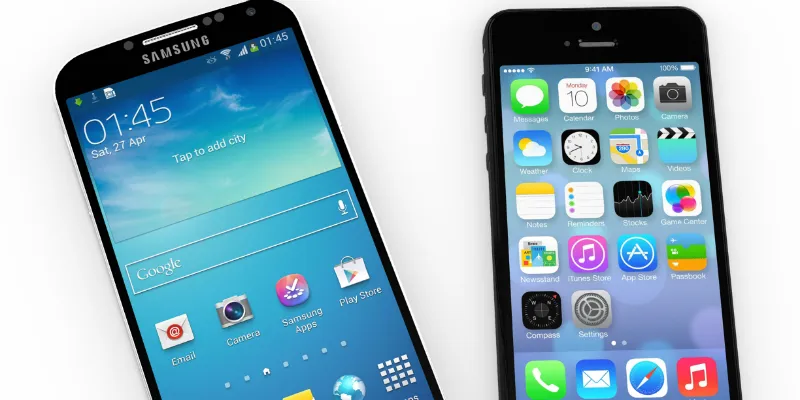How to negotiate and win friends!
Negotiation means coming to mutually agreeable terms after discussion between two parties or more. But when you’re an entrepreneur, the assumption is that you are at the receiving end. How can an entrepreneur prepare himself to come more often to the deal table even if it is not a level-playing field?
“We are convinced about your product,” said the investor. “We have understood that your customers love your product and your market is huge. But before we invest $500 million in your company, we want to be convinced that you have the capability to lead your team to build the organisation that will be both profitable and sustainable for many years to come. We want to be convinced that you have it in you to transition from entrepreneur to leader.”
“So this is how we will establish your leadership qualities. We will narrate a story and at the end of the story, we will ask you a question pertaining to the story. If we like your answer, we will meet again to establish more of your leadership qualities. If we don’t like your answer, we will walk away. Each story will be around a particular theme. Our theme today is Negotiation”.
What is negotiation?

Negotiation is a part of everyday life
Negotiation is a fact of life. Just the way you feel hungry or thirsty, every single day you will face countless situations where you have to negotiate your way through to an outcome of your choice. It is so much a part of our lives that most of us are not even aware that literally every minute of the day we are locked in one negotiation battle or another!
Negotiation is also a great leveller in the sense that there is no human being exempt from this. You may be a beggar on the street or you may be a CEO of an MNC. Situations, risks and expected outcome may be different, but negotiate you will.
When you are an entrepreneur, it goes without saying that your entire journey is peppered with negotiations. It starts with you negotiating with yourself whether you should be an entrepreneur or not. Then you negotiate with your family for their buy-in to your decision. You negotiate with your friends or colleagues to join you as co-founders. As you start ideating on the product, you negotiate with partners to develop the product and later for a whole range of services. As you start hiring, you negotiate with your employees. When you go to market, you negotiate with your customers. As you start to grow and the business needs more oxygen, you start negotiating with investors interested in funding you.
Negotiation is a both a tool and a strategy. It is a tool to get you the outcome of your choice. It is also a strategy that is aligned to your larger vision. And as strategy, it is both short-term and long-term. But remember, there is no long term without the short term. In that sense, it is not a knee-jerk reaction or an ego trip or power play, but behaviour that is clinically planned every step of the way. Like an actor who knows when to shed a tear, a good negotiator employs an array of emotions to bag the result that he expects from the negotiation.
Qualities of a good negotiator
After 20 years in the corporate and 12 years as mentor and teacher, these are some of the home truths Nandini has arrived at that makes you a better negotiator:
• Do your homework before coming to the deal table. The homework is about the person at the other side of the table, the situation, how much he has at stake and how much you have.
• Be empathic. You are not the teeth-baring, chest-beating bonobo here. A good negotiation is one where both parties go home feeling good about themselves. It will never be an equal outcome for both parties, but the one who does not have an upper hand can still go home with his self-esteem intact.
• Be prepared for a surprise. The surprise could be both good and bad. A good surprise can trip you as much as a bad.
• Send a woman in to negotiate. I find this works because women being emotional creatures have a highly sensitive antenna for emotional shifts in the other person.
• Don’t be overbearing. My way or the highway is the worst attitude at the deal table. And god forbid if your attitude is communicated in your demeanour!
• Keep a tab on time. The best negotiations are those that are wrapped up quickly. The more you dawdle, the more you lose time and the longer you keep the negotiation open the less chances of either of you going home with a winning decision.
• Give something unexpected. Most people assume that in a negotiation both parties should only grab, grab and grab. I have sat at many negotiation tables where one party decides on generosity as a winning strategy. Believe you me, that party gains a lot more than when he set out.
Our recommendation, if you want to know more on negotiation with examples, Nandini’s book, Start up Stand up.
When giants lock horns
Let us understand negotiation with the live case of Apple and Samsung and the numerous times they have come to the negotiation table in court over the last few years.

Phone manufacturers need to reach a compromise on design
When Apple filed a lawsuit in April 2011 against Samsung for copying the iPhone’s look and feel in their Galaxy line of phones, it shook the world of business. After all, Samsung was one of Apple’s biggest suppliers. Shouldn’t that have persuaded the two companies to negotiate and move ahead?
It didn’t - and by December 2011, the fight had extended to 30 cases across North America, Asia, Europe and Australia. The court-mandated mediation between the CEOs of both companies lasted just two days and ended in an impasse. Neither was ready to blink. By July 2012, both sides were engaged in 50 lawsuits across the globe.
Advantage One went to Apple in the United States when in August 2012, a California jury ruled in favour of Apple and ordered Samsung to pay more than $1 billion in damages for patent violations of Apple products (this was subsequently scaled down). In spite of this victory, a permanent injunction against the sale of Samsung’s alleged infringing products was denied in December 2012, and they remained on sale. Elsewhere in Asia, UK and Europe, Samsung scored a few legal wins.
Between 2013 and May 2018, when Apple was finally awarded $539 million (against their original claim of $2 billion), it was an intense seesaw and one of the most closely watched legal battles. Soon after, in Jun 2018, Apple and Samsung sat down at the negotiation table, and brought the seven-year legal fight to an end. The settlement amount and terms are yet to be disclosed.
“And if I had to characterize it, it didn’t really accomplish anything.” These were the words of a Santa Clara law professor who had been closely tracking the Apple-Samsung legal feud. Apple counters this reasoning with the philosophy that “the case has always been about more than money...It is important that we continue to protect the hard work and innovation of so many people at Apple.”
Some questions and answers
My question to you, Mr. Entrepreneur, is this:
Was the seven-year legal fight truly warranted? Could they have shown better negotiation capabilities? And considering that they ultimately settled at the negotiation table, was it a case of too little too late?
The entrepreneur deliberated in his mind for some time before he gave his perspective.
What could have been an intelligent foresight in the beginning of the case was brought out as a rueful truth in hindsight - that the courtroom was not the place for Apple or Samsung to score any victory.
Apple may have won on paper, said the entrepreneur, but it gave them no competitive advantage. No Samsung products went off the market. Again, Samsung may cock a snook at Apple with its aggressive pressure of innovative products and increasing market share - but it lost out on a precious and symbiotic business partnership.
Neither Apple nor Samsung applied diligence in preparing for the battle, the entrepreneur continued. They failed to understand what was at stake – both in terms of the big picture, and of specific outcomes.
What it actually boiled down to was seven long years of litigation that cost both companies hundreds of millions of dollars. Both these resources could have been better used for innovation. Litigation cheated both Apple and Samsung of this advantage.
This is the debilitating aspect of the long drawn out litigation and negotiation.
Both Apple and Samsung fell into the trap of convincing themselves that they had invested too much in the battle to quit. And the longer the fight extended, the more contentious and rigid their posture became.
Had they worked harder and more prudently at negotiation to stay out of court, it would have been a case of happier ending and outcomes.
When both parties at the negotiating table take a rigid and inflexible stand, mediation ceases to be an effective tool for conflict resolution.
If only Apple and Samsung had been less overbearing, if only they had seen through the ‘zero sum’ game they were playing, they could have leveraged their BATNA (best alternative to a negotiated advantage) for a win-all benefit. Apple may maintain it is not about the money, but will the settlement amount make any dent on their current $267 billion cash pile?
That Apple and Samsung finally decided to negotiate to bring the curtains down on their long war was an unexpected move. The terms have not been made public, but I do sincerely hope that it is a step that has more of the give and less of the take. I wish both the giants all success in the years ahead, said the entrepreneur.
Well said, smiled the investor. See you next week!
Here is our poser for the readers: What is one negotiation win you are proud of and what have you learnt from it?
Mail it to us before 26th Dec to [email protected] and we will pick one winner, publish that story on 29th Dec and you will get a chance to have a free half-hour mentoring session with Nandini Vaidyanathan.







